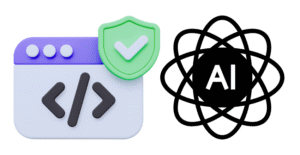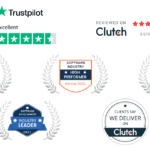Being restricted by geographical boundaries when building a data team? You’re hampering your own potential. Despite the rise of remote work, many companies still struggle to find the right approach when it comes to building a large remote data team. Missteps can lead to inefficiencies and miscommunication.
Think local when hiring for your data team? It’s time to challenge that paradigm. In my experience, I’ve seen numerous businesses limiting their potential by confining their talent search to a specific geographical area. It’s not just about filling positions; it’s about finding the right people who bring unique insights.
The fix? Build a big remote data team. Having done so successfully time and again, let me guide you in leveraging the global talent market to optimize your operations and spur innovation.
Building a big remote data team can be an effective strategy to leverage global talent while optimizing operational costs. This approach also injects fresh perspectives into your projects, sparking innovation. However, achieving this requires meticulous planning, proficient management, and a technology-forward mindset.
Benefits of a Remote Data Team

Before diving into the logistics of forming your team, it’s important to understand the significant advantages:
- Cost Efficiency: Nearshoring and remote resources generally lead to lower costs due to lower living expenses in various regions.
- Access to Global Talent: You get to choose top-tier talent from around the world.
- Scalability: Scalability becomes easier and faster with remote teams as you can rapidly add personnel without geographic constraints.
Strategy for Building a Remote Data Team
Identify Your Needs
Start by understanding what skills and competencies your business requires. Ask questions like:
- What specific data needs does your business have?
- What are the essential skills, qualifications, and experience levels required?
Compile a detailed list of all necessary skills. For example, you might need data analysts skilled in SQL, data scientists proficient in Python, or machine learning experts.
Create Clear Job Descriptions
Detailed job descriptions are crucial because they set expectations right from the start. Be sure to articulate:
- Roles and responsibilities: What specific tasks will the person be handling?
- Skills and experience: What technical know-how and industry experience are necessary?
- Soft skills: Effective communication, teamwork, and adaptability.
Leverage Recruitment Platforms
Use specialized platforms to find qualified candidates. Websites like LinkedIn, Indeed, and Glassdoor are excellent for posting job descriptions and shortlisting profiles. Additionally, specialized forums like Data Science Central and Kaggle can cater to specific data roles.
Conduct Rigorous Interviews

Filtering candidates through rigorous interviews is essential to ensure quality. Consider a multi-step interview process that includes:
- Screening Calls: Brief initial interaction to understand their background and gauge communication skills.
- Technical Tests: Assess their technical acumen through coding tests or problem-solving exercises.
- Behavioral Interviews: Explore their soft skills and cultural fit via behavioral questions.
Utilize Remote Collaboration Tools
Your remote team will need the right tools to collaborate effectively. Some essential ones include:
- Communication Tools: Slack, Microsoft Teams, Zoom.
- Project Management: Asana, Trello, Jira.
- Data-Specific Tools: GitHub for version control, and data environments like Databricks or Jupyter Notebooks.
- Storage Solutions: Google Drive, AWS S3 for secure data sharing and storage.
Establish Clear Communication Protocols
Smooth communication across different time zones is critical for a remote team. Establish standardized communication protocols which may include:
- Daily Stand-ups: Short, focused meetings to align team members.
- Weekly Reports: Summarize the week’s work and plan for the next.
- Regular Check-ins: More in-depth discussions for project updates and team well-being.
Make sure that everyone knows how to reach out for urgent concerns and how to share non-urgent updates.
Develop a Strong Company Culture
Building a cohesive team culture when everyone is remote can be challenging but not impossible. Here’s how you can foster a sense of community:
- Virtual Social Events: Host virtual coffee breaks or happy hours to build camaraderie.
- Recognition Programs: Regularly acknowledge and reward good performance.
- Feedback Loops: Encourage open communication and constructive feedback.
Focus on Training and Development
Ongoing training and development keep your team sharp and abreast of the latest trends and technologies. This can be achieved through:
- E-learning Platforms: Enroll team members in courses on Udemy, Coursera, or DataCamp.
- Certification Programs: Certifications from recognized institutions (like AWS, Google).
- Workshops and Seminars: Enable participation in relevant workshops and industry-specific webinars.
Implement Robust Security Measures
Data security is paramount, especially when working remotely. Ensure your data team follows these best practices:
- Secure Channels: Use encrypted communication channels.
- Access Control: Implement role-based access to sensitive data.
- Regular Audits: Conduct periodic security audits to identify vulnerabilities.
- Compliance Training: Ensure your team understands relevant data laws and compliance standards (like GDPR).
Measure Performance and Set KPIs

To ensure your team is meeting objectives, it is essential to set clear Key Performance Indicators (KPIs). Some metrics to consider include:
- Project Milestones: Are deadlines being met?
- Quality of Work: Is the output meeting the required standards?
- Engagement: Are team members actively participating and contributing?
- Turnaround Time: How quickly are data tasks completed?
Regularly review these KPIs to measure progress and identify any areas needing improvement.
Establish Knowledge Sharing Practices
Building a remote team has its unique challenges, but a robust knowledge-sharing practice can overcome many hurdles:
- Documentation: Encourage comprehensive documentation of processes, codes, and projects.
- Internal Wiki: Create an internal knowledge base where team members can easily find resources.
- Regular Internal Talks: Schedule presentations or learning sessions where team members can share new insights or recent learnings.
Evaluate and Iterate
Finally, continuously evaluate your processes and make necessary iterative changes. This ensures that your team remains efficient and effective. Hold regular retrospective meetings to discuss what’s working and what isn’t, and be open to making adjustments based on feedback.
Building a big remote data team can be a game-changer for your business, providing you access to a global talent pool and cost benefits. However, it requires deliberate planning, a structured process, and robust communication tools.
By identifying your needs, creating detailed job descriptions, utilizing the right platforms for recruitment, ensuring effective communication, and investing in the right tools and training, you are well on your way to building a successful remote data team. Always prioritize security, company culture, and knowledge sharing to maintain a cohesive and productive team environment.
Take these steps seriously, and you’ll not only assemble a strong remote data team but also create an environment that fosters innovation and growth. As you grow your team, remember that continuous evaluation and optimization are your allies in this ever-changing digital landscape.
Building a remote data team is no small feat, but with the right strategies in place, your business stands to gain significantly, both in terms of talent and efficiency.












